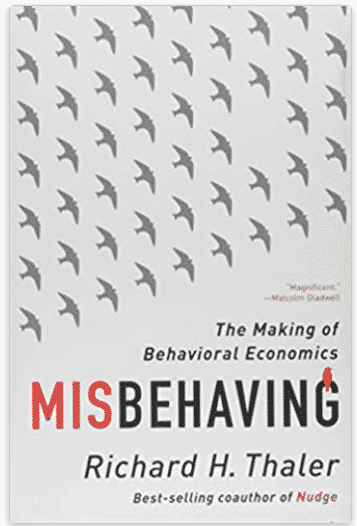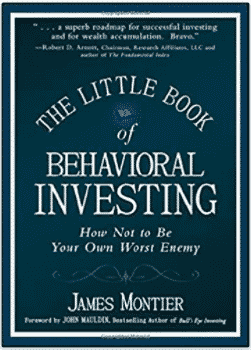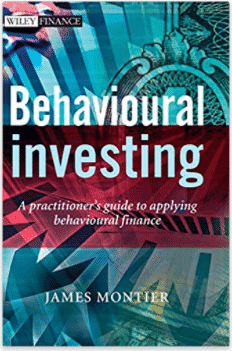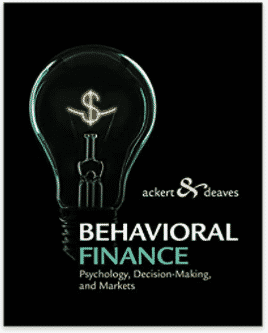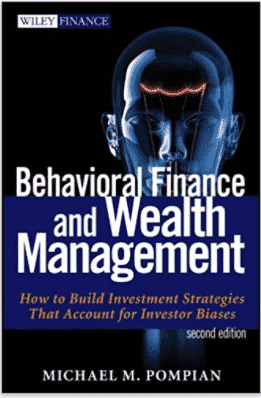
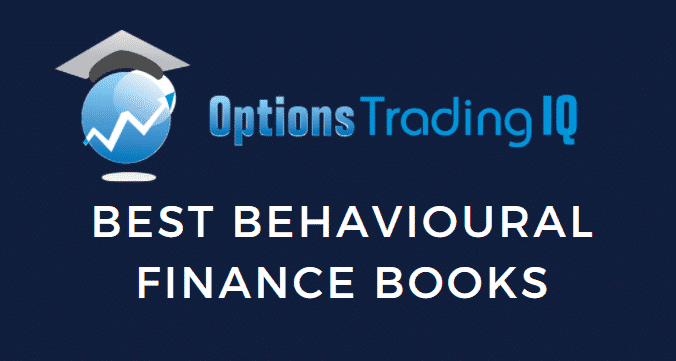
Today we are looking at the best behavioural finance books including gems from Richard Thaler and Daniel Kahneman.
Which other authors made our list?
Introduction
Elon Musk tweets about Bitcoin and the price of Bitcoin and other cryptocurrencies shoots up.
A later announcement by Tesla that it would not accept Bitcoin as a medium of purchase led to prices of Bitcoin falling.
How would you explain these behaviors?
How would you value Bitcoin?
These are some unanswered questions that traditional finance theory may find hard to provide solutions to.
The efficient market hypothesis suggests that markets are efficient and there are no arbitrage opportunities.
Additionally, investors are sane and behave rationally.
So why would you want to include the elements of behavioral finance in the decision-making?
Long story short, the efficient market hypothesis does not actually work in the real world.
Behavioral finance is concerned with investors’ psychology and resulting activities in the market.
The financial theory and investments assume a rational frame of mind for an investor.
However, often, this is not the case because investors are influenced by emotions and biases.
These biases affect the rational decision-making and finally the actual trades in the markets.
The behavioral effects of investors impact traditional finance theory.
Some assumptions of EMH include:
- Investors always act rationally.
- Investors are not affected by bias.
- Achieving profits is the only reason for investing.
- Investors are not affected by other investors (herding).
Behavioral finance studies require extensive psychological research and investors without the relevant background may find it intimidating.
However, several books on the topic are available in the market which simplify the complex topic for investors of all levels.
We will discuss some of these books here.
Misbehaving: The Making of Behavioral Economics – Richard H. Thaler
The book has great reviews on Amazon and you can get any version for less than $15.
The author, Richar H. Thaler, is a Nobel laureate and a professor at the University of Chicago’s Booth School of Business.
The title of the book, “misbehaving” suggests how investors are not rational but succumb to their biases.
The book presents this in form of illustrations that are hilarious at times.
The author uses examples from his own investment indiscipline to describe these, “misbehaviors.”
Some key takeaways from the book include:
- Investors are not rational due to their inherent biases.
- Provides a way of looking at the economic theory through a new lens.
- Irrational thinking or misbehaviors can have serious economic consequences for investors.
Thinking, Fast and Slow – Daniel Kahneman
The author of the book is a leading psychologist and a professor at Princeton.
He is also a Nobel laureate (2002) and is the only psychologist to be awarded a Nobel prize for economic sciences.
You can obtain this book for $9.99 for a Kindle edition.
As the title goes, the thinking of an investor is divided into two types.
System 1 is the fast, intuitive, and emotional way to look at things.
System 2 is the slower, logical, and deliberate way of looking at things. It shows the difference between how you would use two different systems to solve 2+2 and 17 * 24.
It then goes on to discuss different biases.
Important characteristics of the book include:
- Several fallacies and traps that may lead to an irrational reaction.
- 3-4 statements at the end of each chapter to practically apply the knowledge in the book.
- Effect of biases on corporate strategies.
The author includes his own research on loss aversion and framing choices.
It portrays how individuals have too much trust in human decision-making.
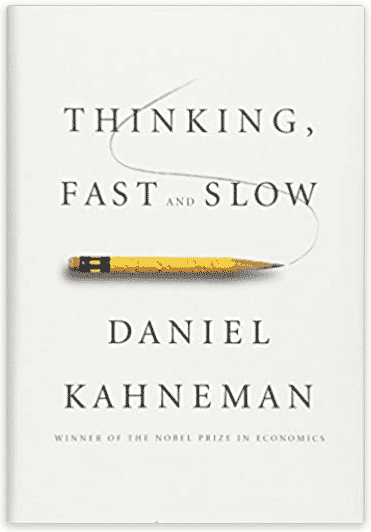
The Little Book of Behavioral Investing: How Not to Be Your Own Worst Enemy – James Montier
The author is an asset allocation manager at GMO, an international investment firm.
He has been a market participant for a long time and has been a co-head for Société Générale.
The book helps the reader to overcome the common and frequent pitfalls and biases during investing.
You can get a kindle version for $15.00.
The factors that lead to losing money or achieving lower returns include bias, overconfidence, and emotion.
The book helps the readers understand that an element of psychological behavior is involved in all investment decision-making.
Some of the lessons that the author would like his followers to remember are:
- Look out for over-optimism in decision-making as randomness can be misconstrued as control.
- Having a disciplined approach to investing by including proper planning and preparation.
- Overcoming the fear of investment decisions by investing in bottomed-out assets or low-risk assets.
- Avoid blindly following one expert.
- Guessing the future can lead to significant losses.
- Market sentiments can be misleading.
- Keep track of price fluctuations.
- Assess investments based on fundamentals and review periodically.
Predictably Irrational: The Hidden Forces That Shape Our Decisions – Dan Ariely
Dan Ariely is a behavioral economist at MIT.
He approaches investment decision-making by refuting the common assumption that investors behave rationally.
The book is available for less than $20 and provides examples from everyday experiences to provide an insight into the mind of the investor.
The book is a relatively small read with 267 pages and is written in a story-like format. Some of the more important aspects include:
- A good read for a novice investor as well as a college student taking up the related courses.
- Uses the placebo effect to describe everyday decisions such as preferring a 50c aspirin over a 5c version.
- A prediction of irrational behavior by general investors can help assess the market sentiment.
You can take this book on your subway ride (pandemic allowing) and read it like a work of fiction.
When you are done, you may not be Warren Buffet but still learn valuable lessons for investing as well as your general life.
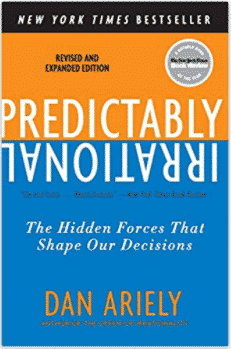
Behavioural Investing: A Practitioner’s Guide to Applying Behavioural Finance – James Montier
One more book from James Montier makes it to the list.
This would punch a small hole in your pocket to the tune of $80.00.
However, take our word for it, it would be worth it as it provides practical investment applications of behavioral finance.
It would be extremely helpful to an investment professional by allowing them a more disciplined approach.
The book would help the reader with:
- Practical applications of behavioral finance in the markets.
- Executive summary for each chapter at the beginning with key points highlighted.
- Key behavioral biases explained with everyday examples.
- Showcasing how a psychological model can help improve investing.
- Recognizing the knowledge does not equal behavior when biases are taken heed of.
Behavioral Finance: Psychology, Decision-Making, and Markets – Lucy Ackert & Richard Deaves
Lucy Ackert is a Professor of Finance at the Kennesaw State University and a visiting scholar at the Federal Reserve Bank of Atlanta.
She has carried out extensive research into behavioral effects on investments.
Richard Deaves is a Professor of Finance at the DeGroote School of Business, McMaster University.
His research areas also span behavioral investing. He runs a financial consulting firm that goes by his name.
The book connects traditional finance and practice to human behavior.
The book provides a more academic approach to behavioral finance and is published by Cengage.
It is also worth slightly higher at $76.99 but provides various features such as highlighting and taking notes in the e-book.
The book provides the reader with the behavioral implications of investments such as retirement and pension plans.
Important topics covered by the book include:
- Psychological principles such as heuristics, emotional and cognitive biases, overconfidence, etc.
- Effect of behavioral influences on investors, practitioners, managers, and markets.
- Impact of social forces on investor’s decision.
The book’s features include complete application cases for each chapter, end of chapter exercises, experiments, and practical simulations to help the readers utilize the theory.
Behavioral Finance and Wealth Management: How to Build Investment Strategies That Account for Investor Biases – Michael M. Pompian
Michael M. Pompian runs his own investment firm, Sunpointe Investments, and advises entrepreneurs, corporate executives, and multi-generational high net families.
He has written monthly columns at Morningstar for nearly 12 years.
Furthermore, he has been the author of the behavioral finance section for the CFA level 3 curriculum.
The book is a 353-page gem that provides real-world application of behavioral finance.
It uses 20 of the most prominent behavioral biases and studies their effect on asset allocation. The book:
- Provides a way for the investors and advisors to either adapt or modify their biases to improve investment results.
- Helps prepare the investor with the “best practical allocation” based on adapted or modified biases.
- Includes case studies to showcase how each market participant can adapt or modify their behavior to improve the economic outcomes of investing.
- Increases the awareness of the behavioral biases for the reader to further improve the investment decision-making.
- Provides practically applicable methods to modify portfolios to achieve financial objectives.
- Addresses the most common biases and ways to manage them.
Please also check out Behavioral Finance and Investor Types which is another book by the same author.
Both books would help the reader with behaviorally modified asset allocations.
Inefficient Markets: An Introduction to Behavioral Finance (Clarendon Lectures in Economics) – Andrei Shleifer
This is a simple book which is a part of the Clarendon Lectures in Economics organized by the Oxford University.
The book proposes changes to the efficient market hypothesis by incorporating the effect of investor’s behavior.
It is comparatively short book with 224 pages and are a part of lectures given in the spring of 1996 by the author.
You may wonder why securities prices do not reflect their fundamental value.
The assumption behind this is the absence of arbitrage opportunities and a rational investor.
The book concedes that the markets are not fully efficient. In addition, investors are not rational and are prone to behavioral biases.
Therefore, these two assumptions are contradicted at both investor psychological level as well as at institutional level.
Some key features of the book include:
- Evidence that investors are not fully rational and arbitrage opportunities are affected by risk aversion, short time horizons and agency problems.
- Provides a practical model of the market by incorporating behavioral finance aspects.
- Complements the efficient market hypothesis and provides behavior adjusted security prices.
The author helps explain the anomalies such as outperformance of value stocks, higher return of index stocks, 1998 collapse of several hedge funds, etc.
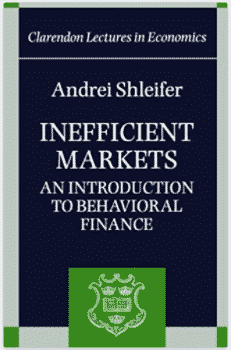
Beyond Greed and Fear: Understanding Behavioral Finance and the Psychology of Investing – Hersh Shefrin
The author is a doctorate holder from the LSE and has been writing for several media outlets such as The Wall Street Journal and Forbes, among others.
He is among the earliest proponents of behavioral impacts on investments and securities.
Beyond Greed and Fear has been an acclaimed book, with J.P Morgan Chase recognizing it as one of the top ten books published since 2000.
The book is dedicated to behavioral effects on the corporate finance decision making.
The book contends that even the savviest and most experienced investors are affected by emotions and behavioral biases.
Therefore, the impact of these emotions and biases should be modelled into investment returns and asset allocations.
Shefrin states that discarding the effect of these biases and psychology of investing is likely to result in losses.
The book is therefore an attempt to recognize these biases, avoid them, or to improve them for proper investment process.
This is like what was advocated by Michael M. Pompian in his books.
The Final Commandment
You may realize by now that investors are not rational and emotional biases affect investment decisions.
These books provide guidelines to investment discipline in the market and make you aware about your biases.
You can work on them, but it can be hard to completely remove them.
The discipline builds up with time and it can be difficult to control your emotions.
However, these biases can be the difference between a successful and a failed investor or trader.
These books offer them practical ways to adjust for these biases.
The books are written by authors who are experts in the field, and it would be hard to pit one against another.
Therefore, we cannot suggest which are better.
You may go by ratings on Amazon but remember some of them are textbooks and students may not be incredibly happy to rate them.
Trade safe!
Disclaimer: The information above is for educational purposes only and should not be treated as investment advice. The strategy presented would not be suitable for investors who are not familiar with exchange traded options. Any readers interested in this strategy should do their own research and seek advice from a licensed financial adviser.
Amazon Associate Disclosure
Options Trading IQ is a participant in the Amazon Services LLC Associates Program, an affiliate advertising program designed to provide a means for sites to earn advertising fees by advertising and linking to amazon.com






